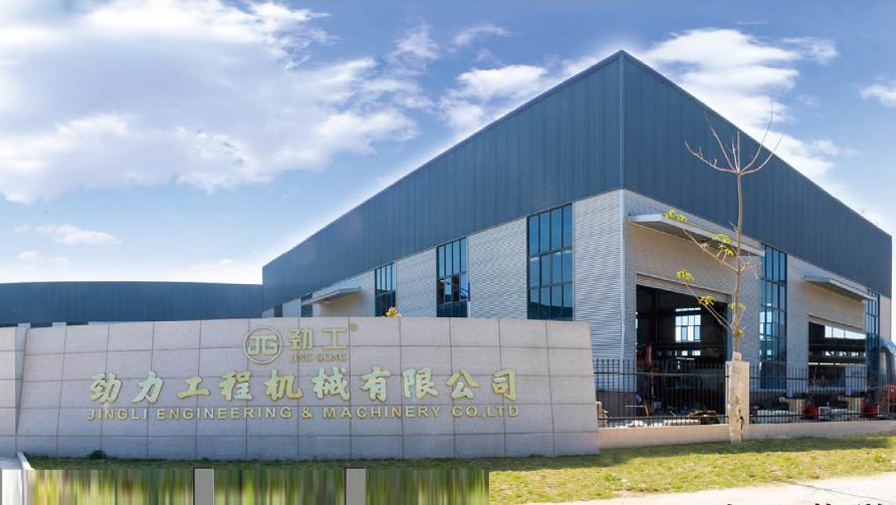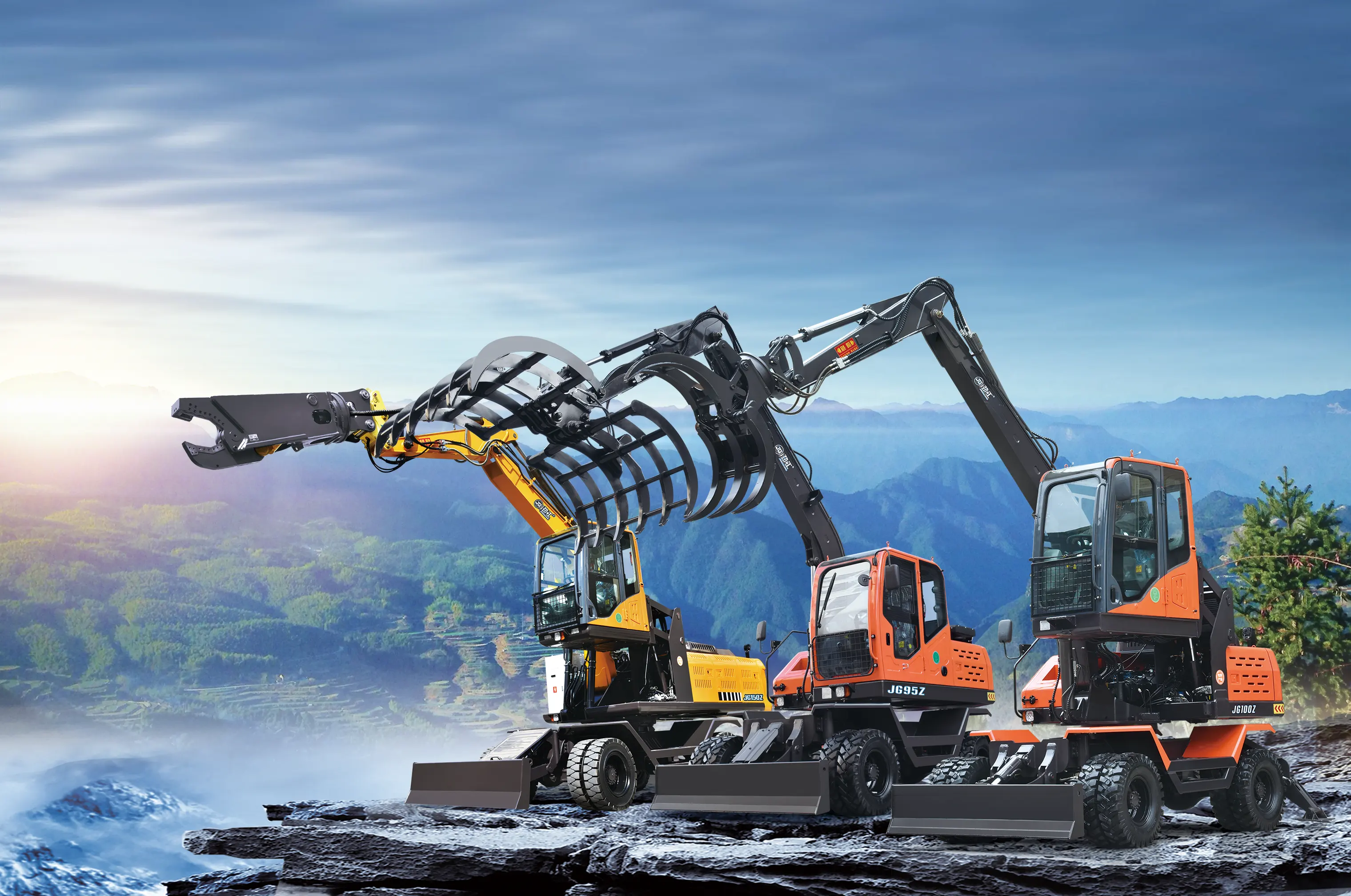
Online Inquiry
Hydraulic Crawler Excavator Factories vs. Traditional Excavator Manufacturers: A Comprehensive Comparison
TIME:2025-04-25 11:40
Hydraulic Crawler Excavator Factories vs. Traditional Excavator Manufacturers: A Comprehensive Comparison
Table of Contents
- 1. Introduction
- 2. Understanding Excavators
- 3. Hydraulic Crawler Excavators: An Overview
- 4. Traditional Excavator Manufacturers: An Overview
- 5. Key Differences Between Hydraulic Crawler Excavator Factories and Traditional Excavator Manufacturers
- 6. The Future of Excavator Manufacturing
- 7. Conclusion
- 8. Frequently Asked Questions
1. Introduction
In the world of construction and engineering, excavators play a pivotal role in various applications, from digging and demolition to land clearing and grading. Among the various types of excavators, **hydraulic crawler excavators** have gained significant popularity for their versatility and efficiency. However, traditional excavator manufacturers still hold a substantial market presence. This article aims to provide a comprehensive comparison between hydraulic crawler excavator factories and traditional excavator manufacturers, delving into their differences, advantages, and the future landscape of excavator technology.
2. Understanding Excavators
2.1 What is an Excavator?
An excavator is a heavy construction machine designed for digging, moving, and lifting materials. Typically equipped with a boom, bucket, and cab, excavators can perform a wide range of tasks with precision. They are categorized into various types based on their design and functionality.
2.2 Types of Excavators
There are several types of excavators, including:
- **Crawler Excavators**: These excavators have tracks instead of wheels, providing stability and maneuverability on uneven terrain.
- **Wheeled Excavators**: Featuring rubber tires, these machines are faster on road surfaces but less stable on rough terrains.
- **Mini Excavators**: Smaller in size, mini excavators are ideal for tight spaces and smaller projects.
3. Hydraulic Crawler Excavators: An Overview
Hydraulic crawler excavators utilize hydraulic systems to generate powerful digging force while maintaining stability on a wide range of surfaces. This makes them exceptionally effective in various construction and engineering tasks.
3.1 Advantages of Hydraulic Crawler Excavators
The advantages of hydraulic crawler excavators include:
- **Superior Stability**: Their low center of gravity and wide tracks provide excellent stability on uneven ground.
- **Versatile Attachments**: Hydraulic crawler excavators can be equipped with various attachments, such as buckets, hammers, and grapples, enhancing their functionality.
- **Fuel Efficiency**: Advanced hydraulic systems improve fuel efficiency, making them cost-effective in the long run.
3.2 Applications of Hydraulic Crawler Excavators
Hydraulic crawler excavators are used in numerous applications, including:
- **Construction Projects**: From residential buildings to large-scale infrastructure, these excavators are essential for groundwork.
- **Mining Operations**: They play a critical role in material extraction and site preparation in mining.
- **Landscaping**: Hydraulic crawler excavators are employed in shaping landscapes, digging ponds, and creating terrains.
4. Traditional Excavator Manufacturers: An Overview
Traditional excavator manufacturers have been in the industry for decades, producing reliable and robust machines that have stood the test of time. These manufacturers offer various excavator models, often emphasizing mechanical components over hydraulic systems.
4.1 Advantages of Traditional Excavators
Some advantages of traditional excavators include:
- **Simplicity and Reliability**: With fewer complex systems, traditional excavators can be easier to maintain and repair.
- **Lower Initial Cost**: Typically, traditional excavators come at a lower price point, making them more accessible for small businesses.
- **Proven Performance**: Many traditional excavators have established reputations for performing reliably in diverse conditions.
4.2 Applications of Traditional Excavators
Traditional excavators are commonly used in:
- **Agricultural Operations**: They are beneficial in farming tasks such as digging ditches and moving soil.
- **Road Construction**: Traditional excavators are often employed in road-building projects for grading and paving work.
5. Key Differences Between Hydraulic Crawler Excavator Factories and Traditional Excavator Manufacturers
5.1 Manufacturing Process
Hydraulic crawler excavator factories employ advanced manufacturing techniques that focus on precision and efficiency. This includes state-of-the-art welding, assembly, and testing processes. Conversely, traditional manufacturers may rely on time-tested methods that prioritize durability over innovation.
5.2 Cost Analysis
When comparing costs, hydraulic crawler excavators typically have a higher initial investment due to their advanced technology and features. However, they often provide long-term savings through fuel efficiency and reduced maintenance costs. Traditional excavators may offer a lower upfront cost, but their operational expenditures can be higher due to lower efficiency.
5.3 Performance Evaluation
Performance is a crucial aspect to consider. Hydraulic crawler excavators generally outperform traditional models in terms of power, speed, and fuel efficiency. Their ability to use various attachments makes them more versatile across different job sites, allowing for quicker task completion.
6. The Future of Excavator Manufacturing
The future of excavator manufacturing looks promising, with increasing trends toward **automation** and **smart technology**. Hydraulic crawler excavators are likely to lead the charge, incorporating advanced features such as telematics and autonomous operation. Traditional manufacturers may need to adapt to these changes to remain competitive in the evolving market.
Advancements in electric and hybrid technology are also shaping the future landscape of excavators. As sustainability becomes more critical, both hydraulic crawler and traditional manufacturers will focus on reducing emissions and enhancing fuel efficiency.
7. Conclusion
In summary, both hydraulic crawler excavator factories and traditional excavator manufacturers have their unique advantages and applications. Hydraulic crawler excavators stand out for their versatility, fuel efficiency, and advanced technology, making them suitable for a wide range of modern construction needs. On the other hand, traditional excavators offer reliability, simplicity, and affordability, appealing to specific markets. Ultimately, the choice between the two will depend on the particular needs of the project, budget constraints, and long-term operational goals.
8. Frequently Asked Questions
1. What is the main advantage of hydraulic crawler excavators over traditional excavators?
**Hydraulic crawler excavators** offer superior stability, versatility with attachments, and fuel efficiency, making them more effective for various tasks compared to traditional excavators.
2. Are traditional excavators still relevant in today's construction industry?
Yes, traditional excavators remain relevant, particularly in applications where simplicity, lower costs, and reliability are prioritized.
3. How do maintenance costs compare between hydraulic crawler excavators and traditional excavators?
While hydraulic crawler excavators may have higher initial costs, they often result in lower maintenance costs due to advanced technology and efficiency, unlike traditional excavators which can incur higher operational expenses over time.
4. What is the expected trend in excavator technology for the future?
The future of excavator technology is expected to focus on automation, smart technology, and sustainability, with hydraulic crawler excavators likely leading this innovation.
5. Can hydraulic crawler excavators be used in all types of terrains?
Yes, hydraulic crawler excavators are designed for improved stability on uneven surfaces, making them suitable for a variety of terrains, from construction sites to mining operations.
Related News
2025-04-25










